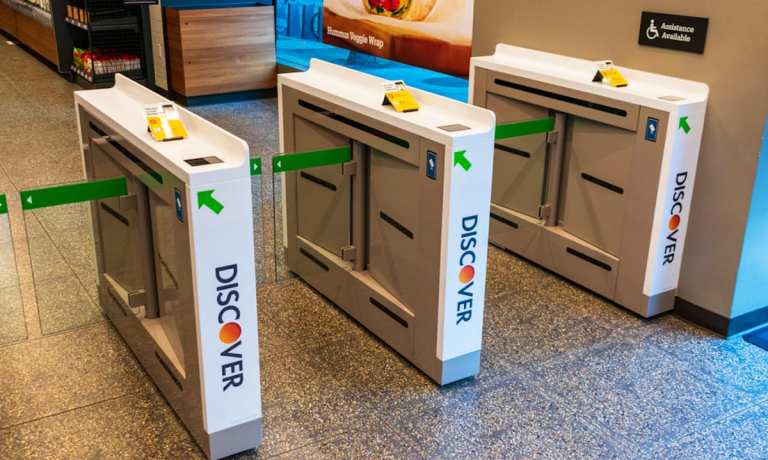Trigo Funding Surpasses $100M As Demand For Autonomous Checkout Grows

Self-service is evolving beyond the kiosk. Israeli computer vision checkout startup Trigo, which creates cashier-free purchasing solutions for grocery stores, announced a new investment on Wednesday (June 16) that brings the company’s total funding to over $100 million. The investment, which comes from German retail and tourism company REWE Group and Israeli tech investment fund Viola Growth, totaled $10 million, according to TechCrunch.
“Frictionless shopping is rapidly becoming a ubiquitous demand among retailers all over the world,” Eran Westman, partner at Viola Growth, said in a statement. “We’ve been following Trigo for the past several years, and we believe their superior technology and unique offering to top retailers positions them to lead this category and change the way people shop all over the world.”
All methods of self-checkout, even the more traditional kiosk model, are still fairly new to most consumers. PYMNTS data from last year’s How We Will Pay report found that in 2020, one in five consumers had used a self-service kiosk to make a purchase, up 25 percent from around 16 percent of consumers in 2019. That suggests that the number of consumers engaging with self-checkout technology is relatively low, but is growing quickly.
The news of Trigo’s fundraise comes as Amazon’s computer vision-powered, cashier-free self-checkout technology expands to new locations. The company announced on Tuesday (June 15) that its “Just Walk Out” technology, which registers customers’ purchases as they walk out of the store, is coming to its largest location yet, a full-size Amazon Fresh grocery store. Additionally, Amazon licenses its technology to third-party stores, making the retail giant a goliath of a competitor for Trigo.
Another key autonomous checkout technology provider making major moves this week is California-based computer vision company AiFi, which announced on Tuesday (June 15) that it will soon open Poland’s first autonomous convenience store in partnership with the country’s largest convenience store chain, Żabka. The tech company has previously partnered with major global grocery and convenience retailers, from Ahold Delhaize to Carrefour. Last week (June 9), Amsterdam Airport Schiphol announced an AiFi-powered, checkout line-free Albert Hejin location, and in late May, AiFi revealed a partnership with Verizon Business to create an auto-checkout NanoStore for the Indy 500 racing event.
“As in-person gatherings start back up, venues and consumers alike will prioritize personal safety in every way possible,” Steve Gu, AiFi’s founder and chief executive officer, said in a statement. “Our NanoStore allows attendees to avoid crowded lines and experience contactless shopping while purchasing their favorite snacks and drinks.”
In February, cashier-free checkout company Standard Cognition announced a $150 million Series C fundraise, making it the first unicorn in autonomous checkout technology. In announcing the haul, Jordan Fisher, the company’s co-founder and chief executive officer, said the technology “will be bigger than mobile or the internet,” calling it “the most disruptive thing to happen to retail in decades.”
While it may be a stretch to call the category bigger than the internet, there is certainly a demand for contact-free technologies as we emerge from the pandemic. PYMNTS data has found that for a plurality of restaurant customers, about 98 million people, their main lingering pandemic-related concerns pertain to their health. For these consumers, the option to enter a store, get what they need and avoid the congestion of the checkout line could be the difference between making a trip to the store and ordering online.